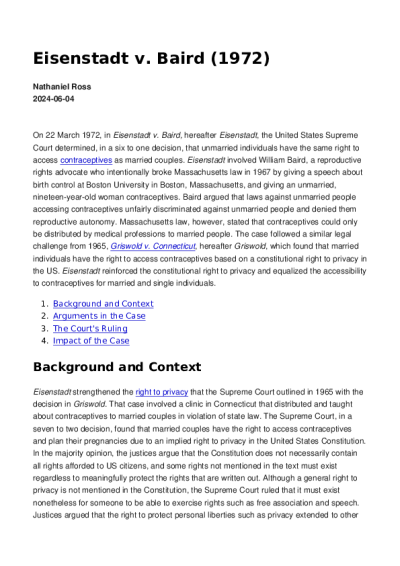On 22 March 1972, in Eisenstadt v. Baird, hereafter Eisenstadt, the United States Supreme Court determined, in a six to one decision, that unmarried individuals have the same right to access contraceptives as married couples.Eisenstadt involved William Baird, a reproductive rights advocate who intentionally broke Massachusetts law in 1967 by giving a speech about birth control at Boston University in Boston, Massachusetts, and giving an unmarried, nineteen-year-old woman contraceptives. Baird argued that laws against unmarried people accessing contraceptives unfairly discriminated against unmarried people and denied them reproductive autonomy. Massachusetts law, however, stated that contraceptives could only be distributed by medical professions to married people. The case followed a similar legal challenge from 1965, Griswold v. Connecticut, hereafter Griswold, which found that married individuals have the right to access contraceptives based on a constitutional right to privacy in the US.Eisenstadt reinforced the constitutional right to privacy and equalized the accessibility to contraceptives for married and single individuals.
Details
- Eisenstadt v. Baird (1972)
- Ross,Nathaniel (Author)
- Pinteric, Aubrey (Editor)
- Law
- Eisenstadt v. Baird
- Contraceptive Law
- Premarital Access to Contraceptives
- History of Contraceptives
- History of contraception law
- Birth control laws
- Sex-related court cases
